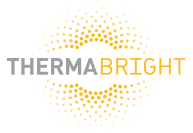Reducing Stress Can Help With Cold Sore Outbreaks
Help Manage Cold Sore Outbreaks With Some of These Stress Reduction Tips
Stress is a proven and a sure path to a cold sore outbreak. Stress hinders many aspects of the body, one of them being the immune system. As discussed in previous articles, stress reduces the body’s ability to repress the HSV-1 virus, which allows an outbreak to occur.
Stress can happen in any part of our lives. Whether it’s related to work, fights with friends, problems with family, or things we find annoying, everyone feels stressed sometimes. It’s important to manage stress if you want a stronger immune response to the virus and help head off cold sore outbreaks.
Stress is a well-known trigger for cold sore (herpes simplex virus type 1, or HSV-1) outbreaks, so managing stress effectively can help reduce the frequency and severity of flare-ups. While individual responses vary, the most effective stress-relief techniques for reducing cold sore outbreaks are typically those that help regulate your nervous system and immune response. These include:
1. Mindfulness & Meditation
-
Why it works: Reduces cortisol (stress hormone) and inflammation, which may help prevent HSV-1 reactivation.
-
What to try: Daily mindfulness meditation (even 5–10 minutes), guided body scans, or breath awareness exercises.
2. Exercise
-
Why it works: Moderate physical activity improves mood, reduces stress, and strengthens the immune system.
-
What to try: 30 minutes of brisk walking, yoga, or swimming 3–5 times per week. Avoid overtraining, which can increase stress.
3. Sleep Optimization
-
Why it works: Poor sleep weakens immunity and increases stress hormone levels.
-
What to try: Aim for 7–9 hours per night; maintain a regular sleep schedule and good sleep hygiene.
4. Cognitive Behavioral Therapy (CBT)
-
Why it works: Helps you manage stress-inducing thoughts and behaviors that could trigger outbreaks.
-
What to try: Work with a therapist or try CBT-based apps or journaling techniques.
5. Deep Breathing & Progressive Muscle Relaxation
-
Why it works: Activates the parasympathetic nervous system (rest-and-digest mode), reducing physical stress responses.
-
What to try: Practice diaphragmatic breathing or guided progressive muscle relaxation once or twice daily.
6. Avoiding Triggers
-
Why it works: Identifying personal stress triggers (e.g. conflict, deadlines, dehydration, overexposure to sunlight) helps reduce flare-ups.
-
What to try: Keep a diary to track outbreaks and possible triggers, including emotional stress patterns.
7. Adaptogens & Supplements (Consult a healthcare provider first)
-
Examples: Ashwagandha, L-theanine, and Rhodiola may help modulate stress.
-
Lysine: Some evidence suggests that lysine supplements may help reduce outbreak frequency when combined with stress management.
When Stress Wins
If you find yourself in an overly stressful position, when you simply cannot avoid stress, and can feel its effects creating a cold sore, the best weapon in your arsenal will be InterceptCS™. Medically proven to help with preventing cold sores, portable and discrete, let InterceptCS™ be your first defense against outbreaks when times are tough. Find out more about InterceptCS™ now.





